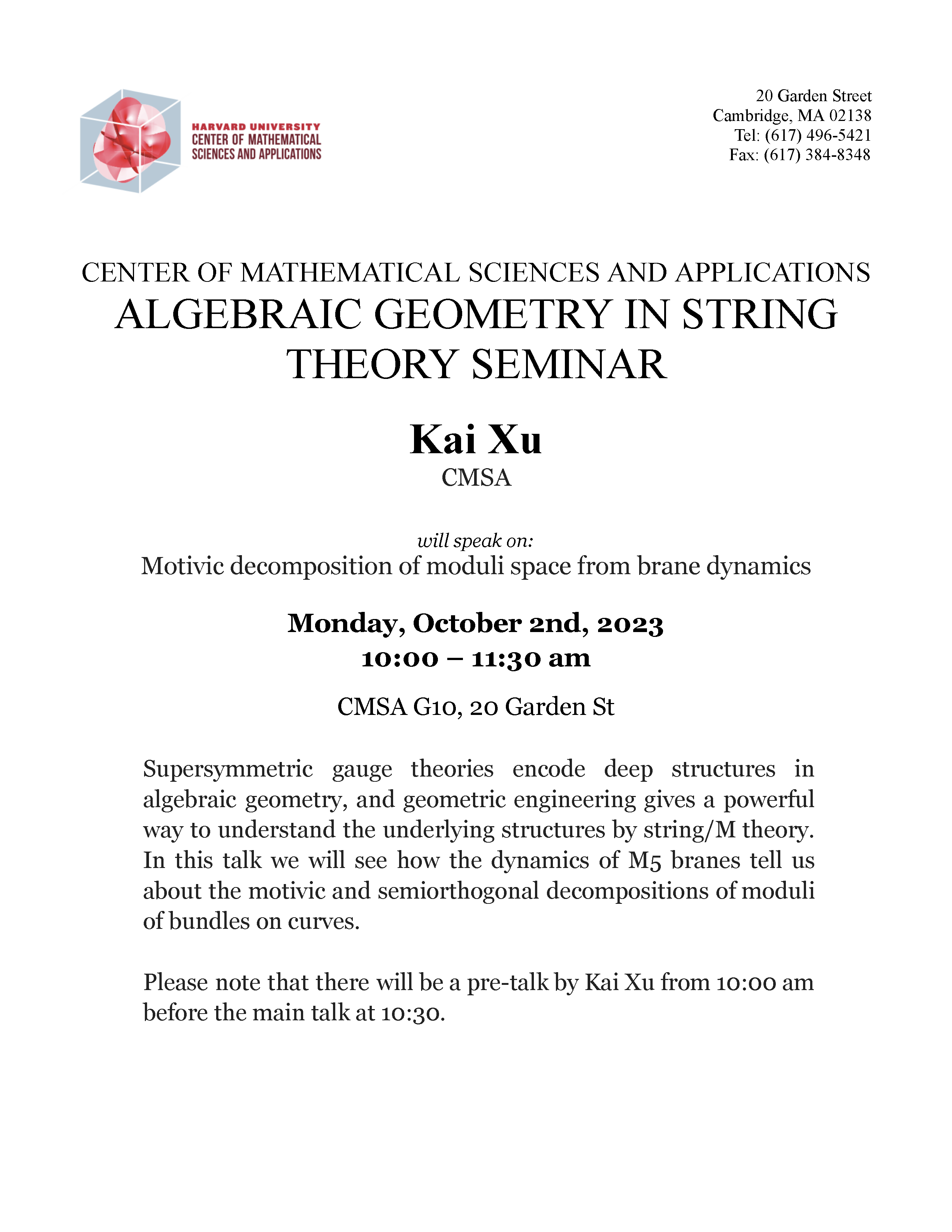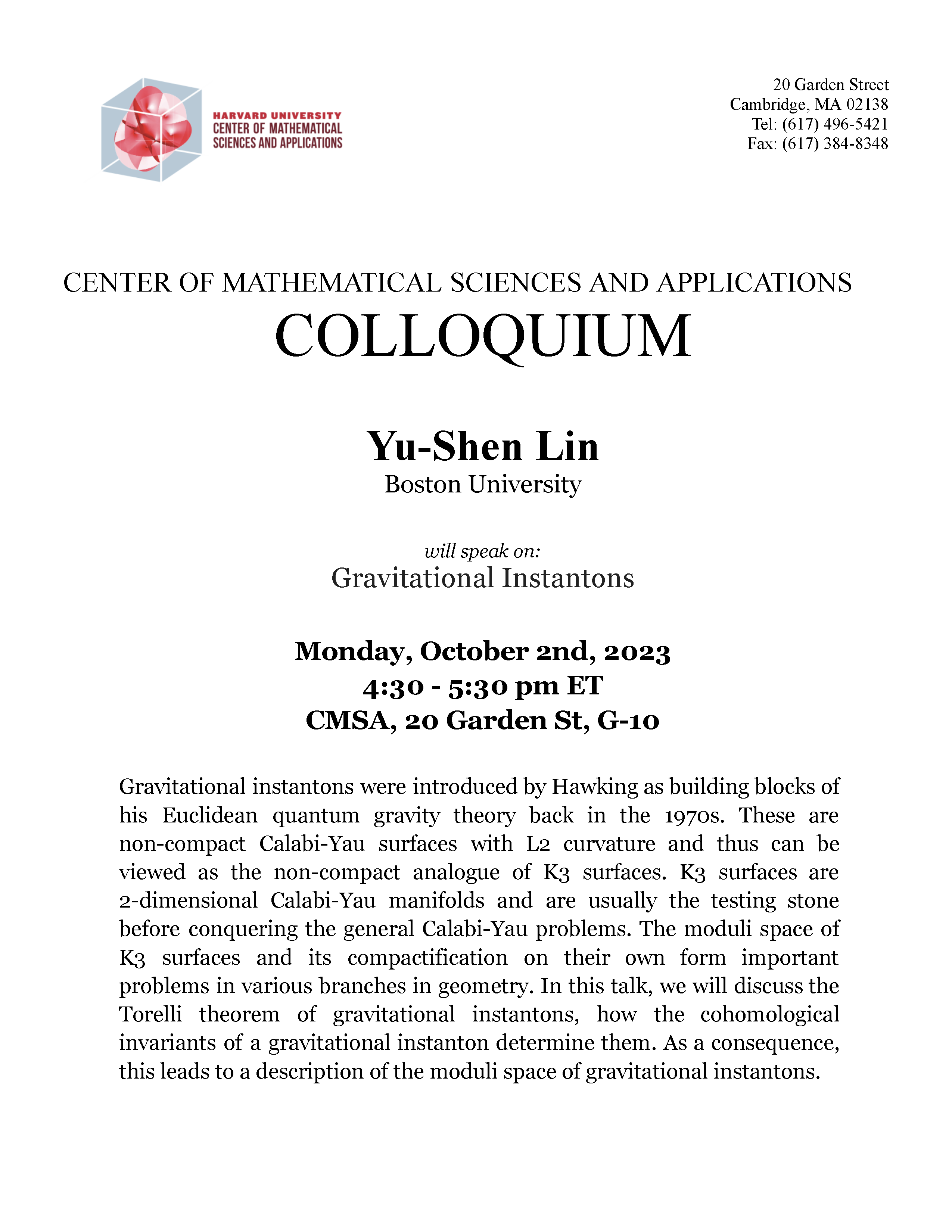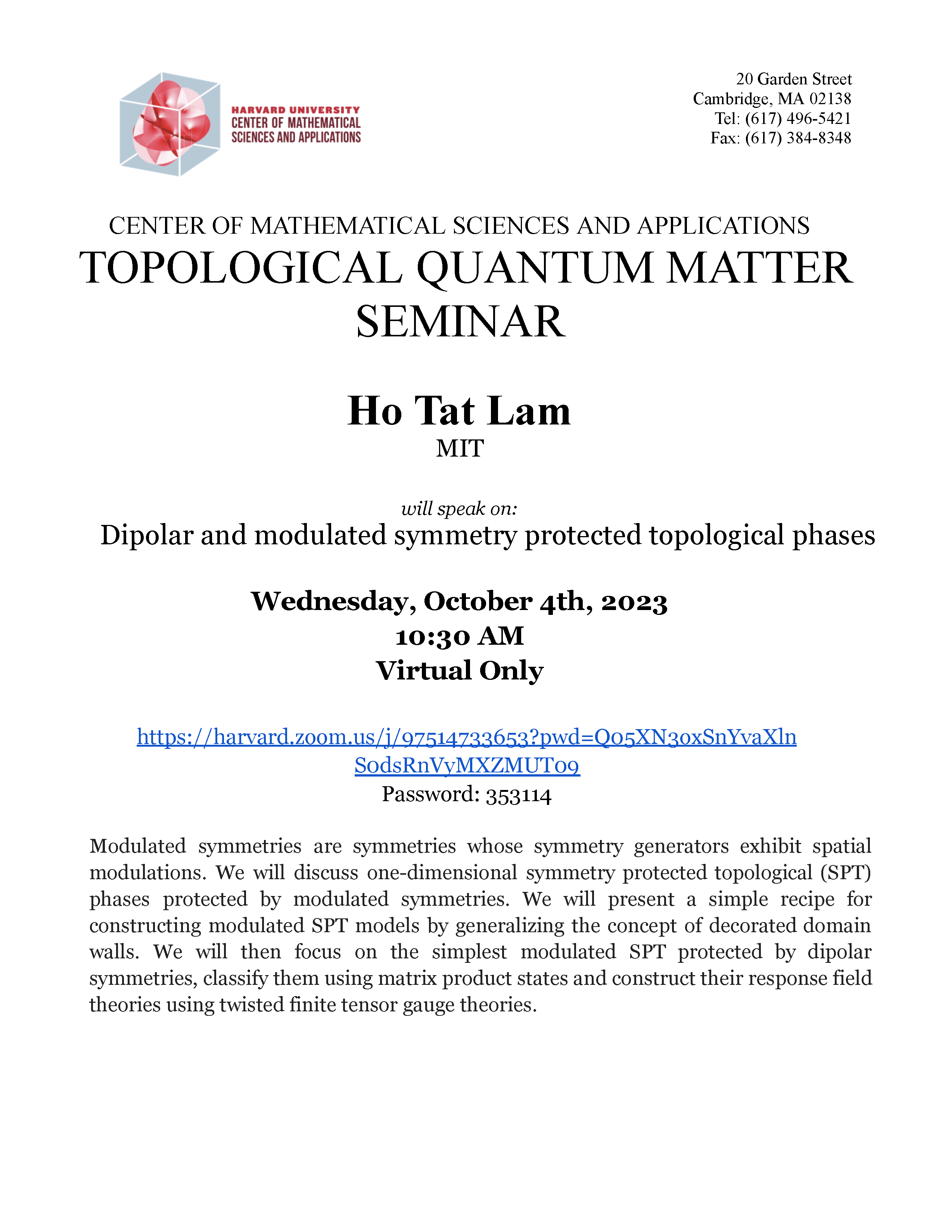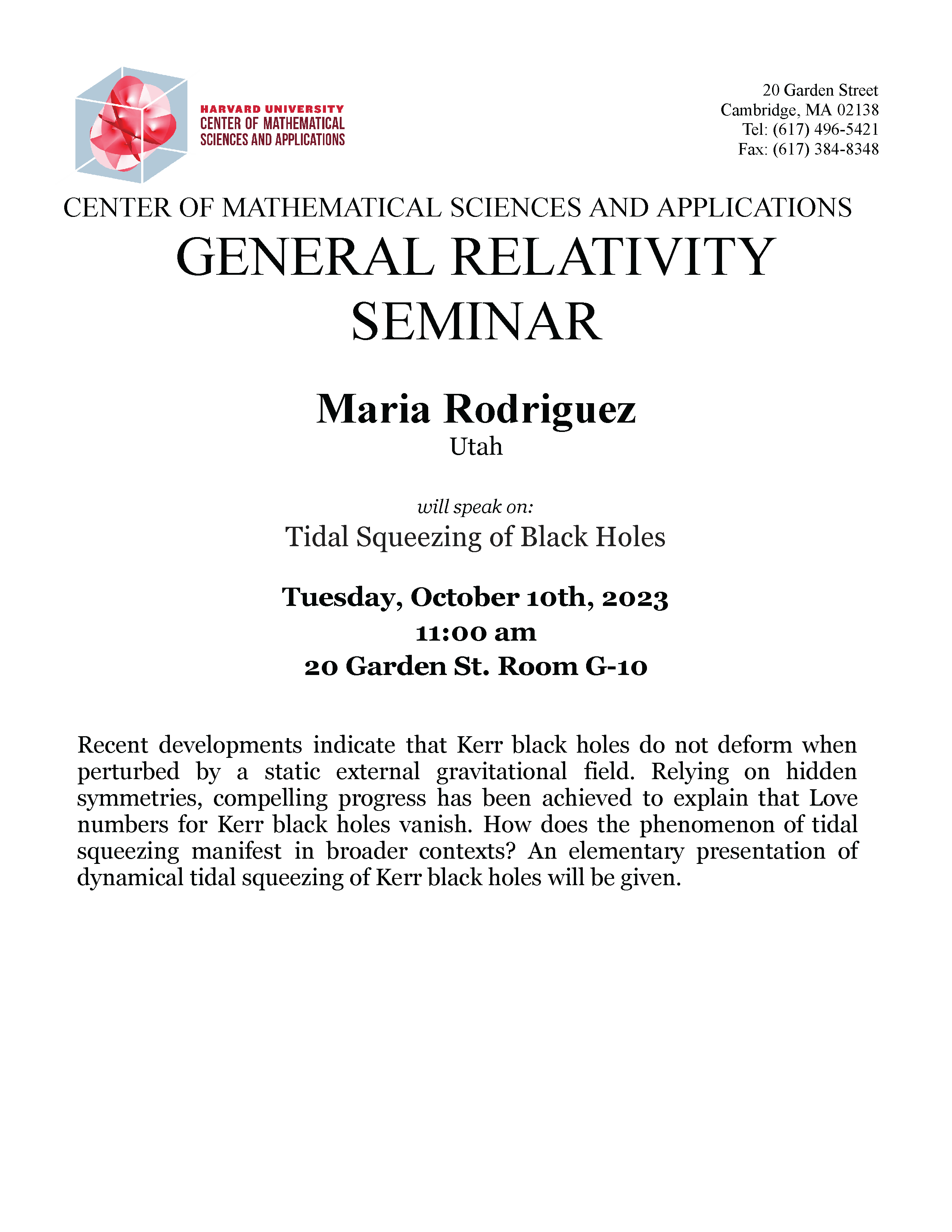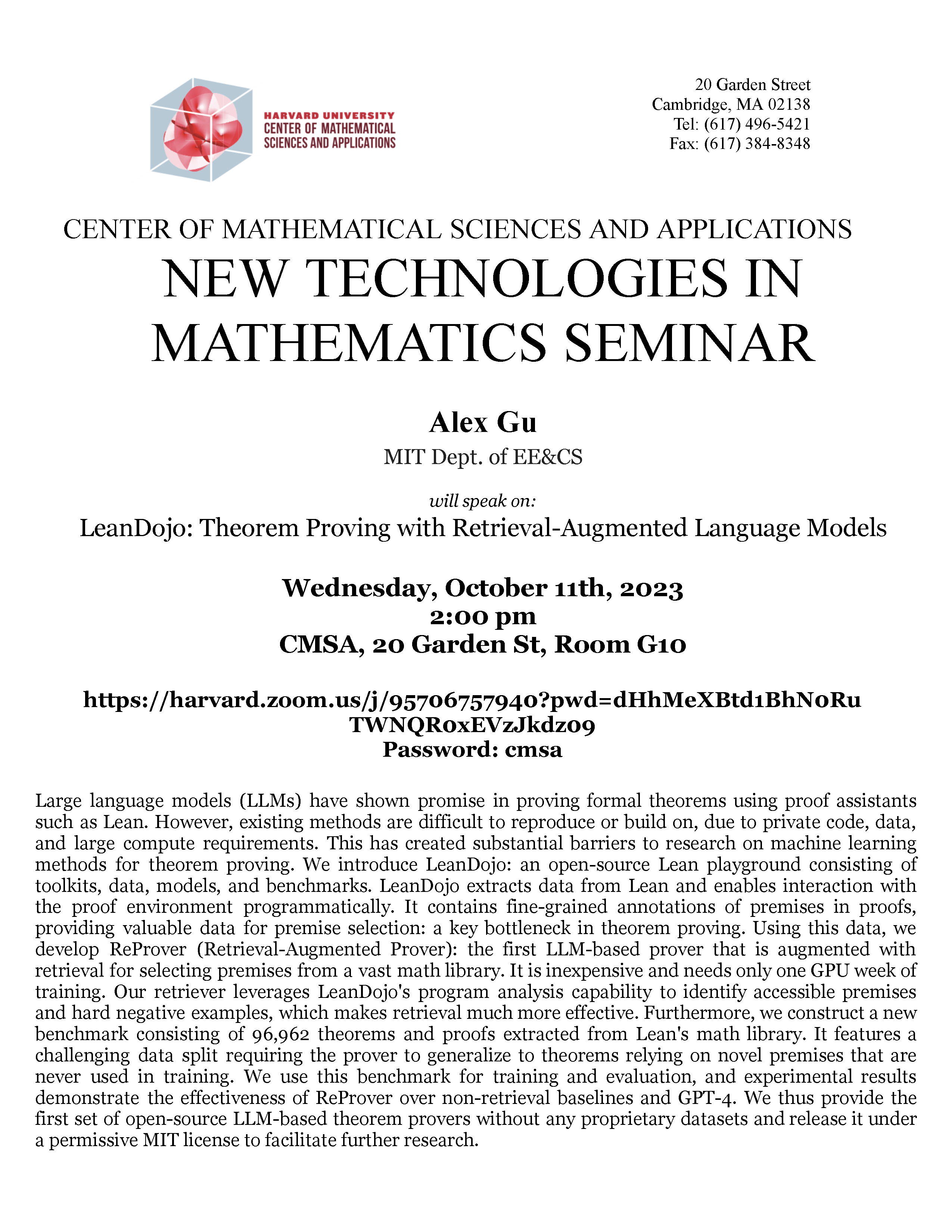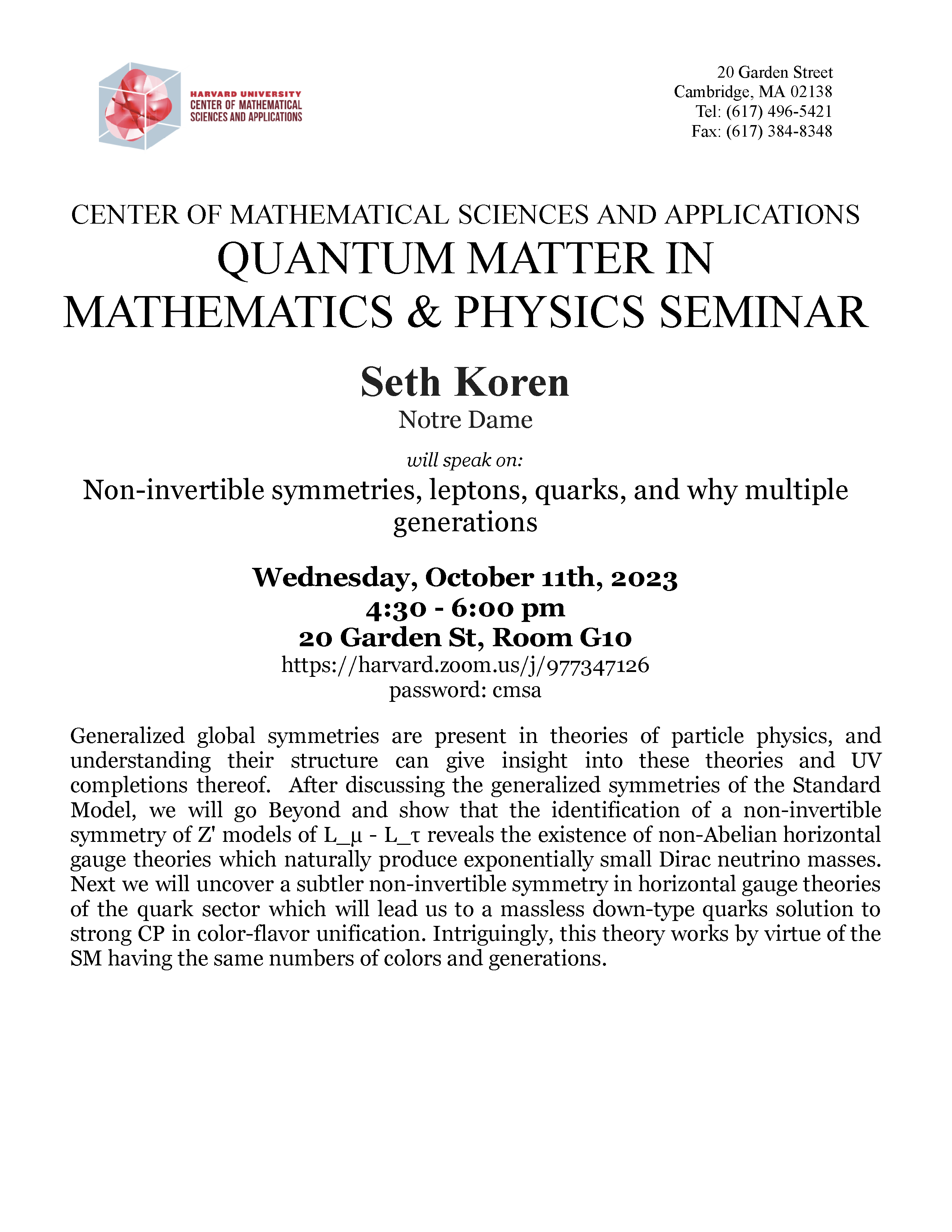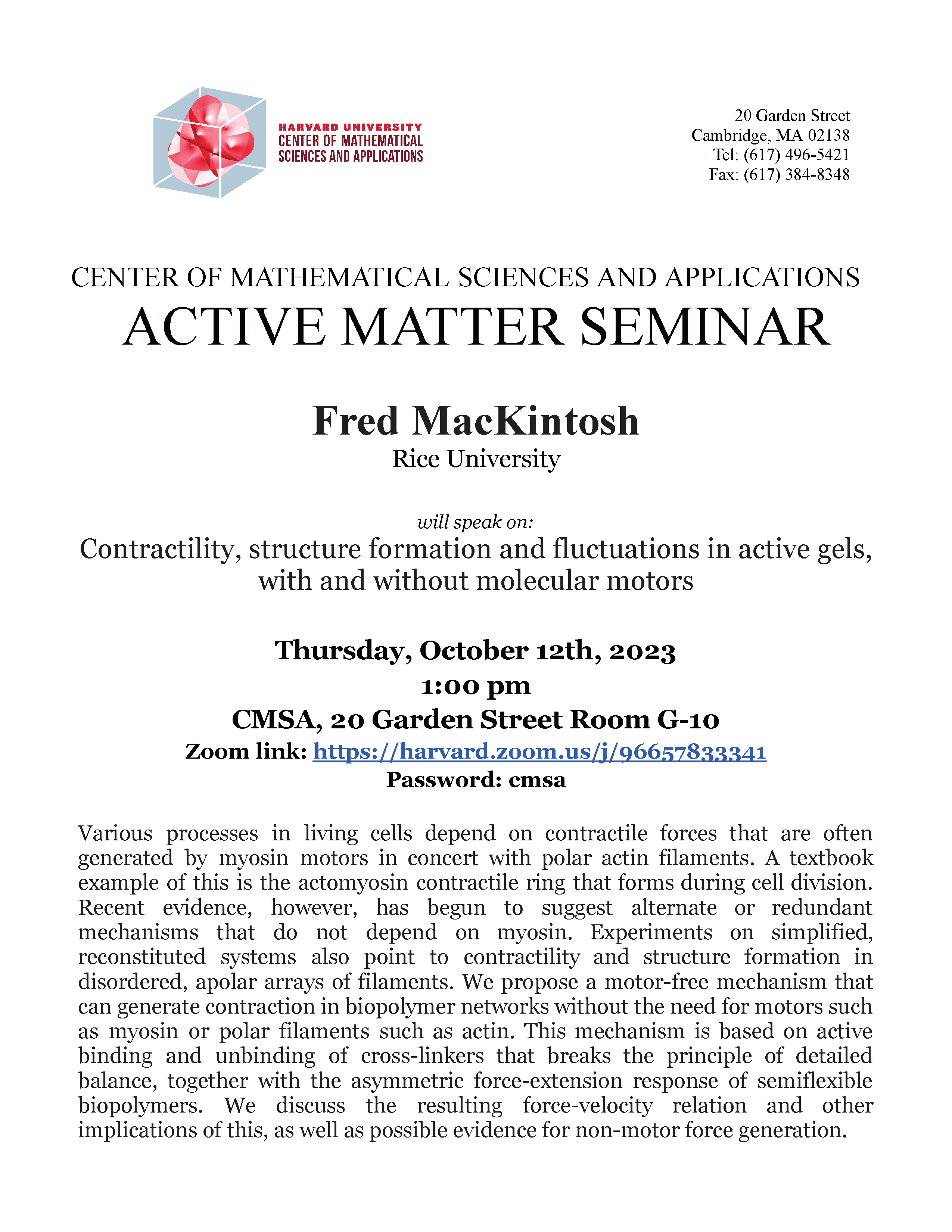Motivic decomposition of moduli space from brane dynamics
CMSA Room G10 CMSA, 20 Garden Street, Cambridge, MA, United StatesAlgebraic Geometry in String Theory Seminar Pre-talk Speaker: Kai Xu (CMSA): 10:00-10:30 am Speaker: Kai Xu (CMSA) Title: Motivic decomposition of moduli space from brane dynamics Abstract: Supersymmetric gauge theories encode deep structures in algebraic geometry, and geometric engineering gives a powerful way to understand the underlying structures by string/M theory. In this talk we will see […]

